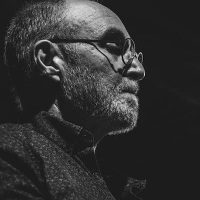Community, Leadership, Experimentation, Diversity, & Education
Pittsburgh Arts, Regional Theatre, New Work, Producing, Copyright, Labor Unions,
New Products, Coping Skills, J-O-Bs...
Theatre industry news, University & School of Drama Announcements, plus occasional course support for
Carnegie Mellon School of Drama Faculty, Staff, Students, and Alumni.
CMU School of Drama
Wednesday, September 05, 2018
Interview with Veteran Sound Designer: Seph Lawrence
Pro Audio Files: If you want to know how to get your start and succeed in any field, it is extremely insightful to learn how others have navigated their career paths. Over the last 25 years or so, Seph Lawrence has served as Creative Director, Sound Supervisor and Sound Designer for companies like Futurity, Blizzard Entertainment, Raven Software and currently, Torrential Audio, “Creators of unique recorded and designed sound effects for all types of media”. In my interview with him that follows, he generously offered to share his unique perspective, experience and advice for emerging sound designers.
Subscribe to:
Post Comments (Atom)

2 comments:
This article is especially interesting because it’s from the point of view of someone who does a similar job to a theatrical sound designer, but took his career in a completely different area of entertainment. Not only does it provide ideas for those of us who work in this field, but it demonstrates how truly versatile a skill set, such as sound design, can be. Interdisciplinary communication and cooperation is especially important in our industry of theatre, as in the end, theatre consists of multiple mediums (lighting, sound, performance, live music) coming together to form one cohesive product and experience. In this article, Seph Lawrence never mentions theatre, and generally speaking, there is not much crossover between the theatrical industry and that of interactive media (in this example, video games), because theatre is a more passive medium than video games. It would be interesting to see how one would combine traditional theatre and the medium of video games into one experience.
This is really interesting and applicable to theatrical sound design and even other areas. I found the advice to “always be working on something” even if you are not working on a job and the advice to restrict options and choices to inspire creativity to be especially insightful and helpful. It seems like with lots of modern software suites, with regards to audio and other fields as well, the endless options and minute details can actually be really inhibiting if not used efficiently. By artificially introducing a number of restraints to any overwhelming creative project, it can help both by grounding us to a starting place and by forcing us to be creative. As for always working on something, its important to be growing and learning, and especially between jobs it’s important to keep working on something, whether it’s just playing around with your tools to learn or working on something more defined.
Post a Comment